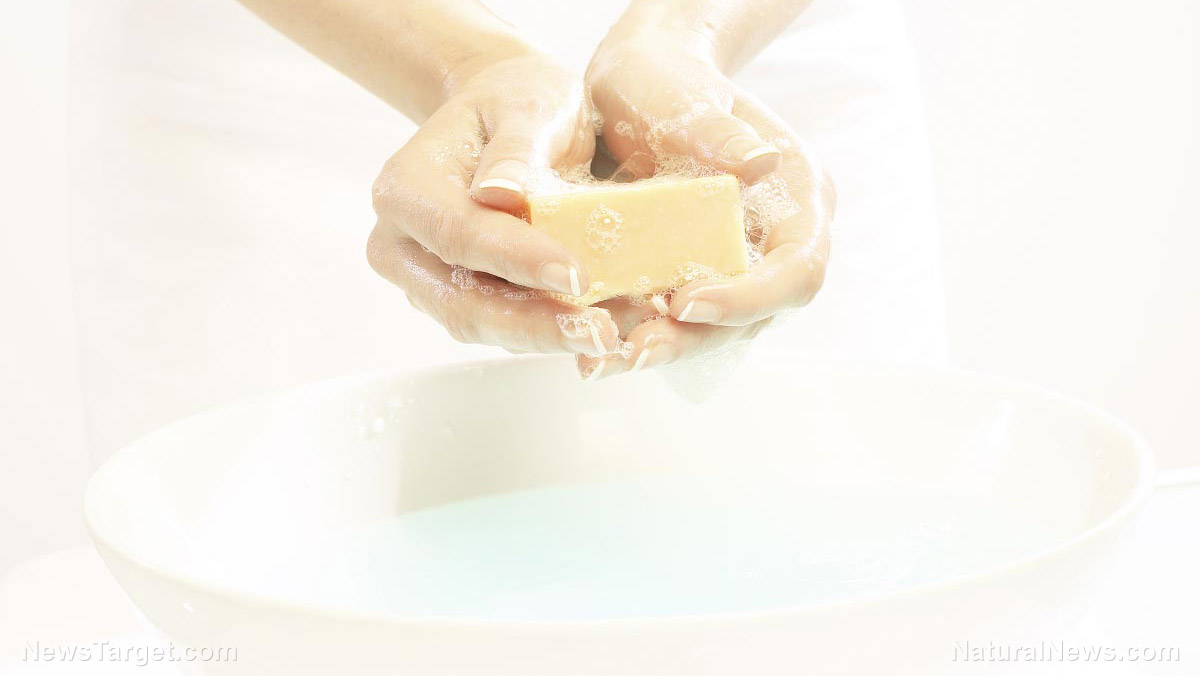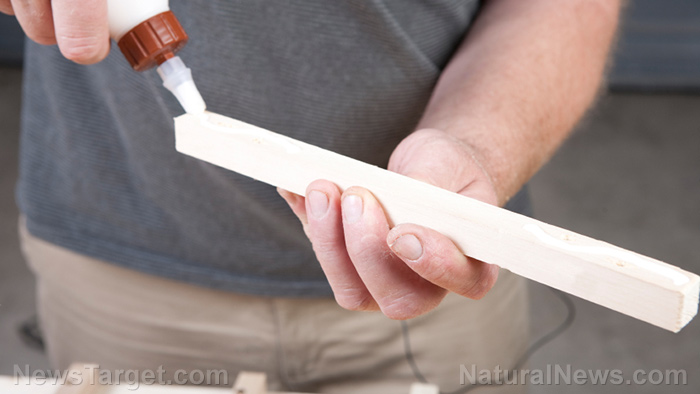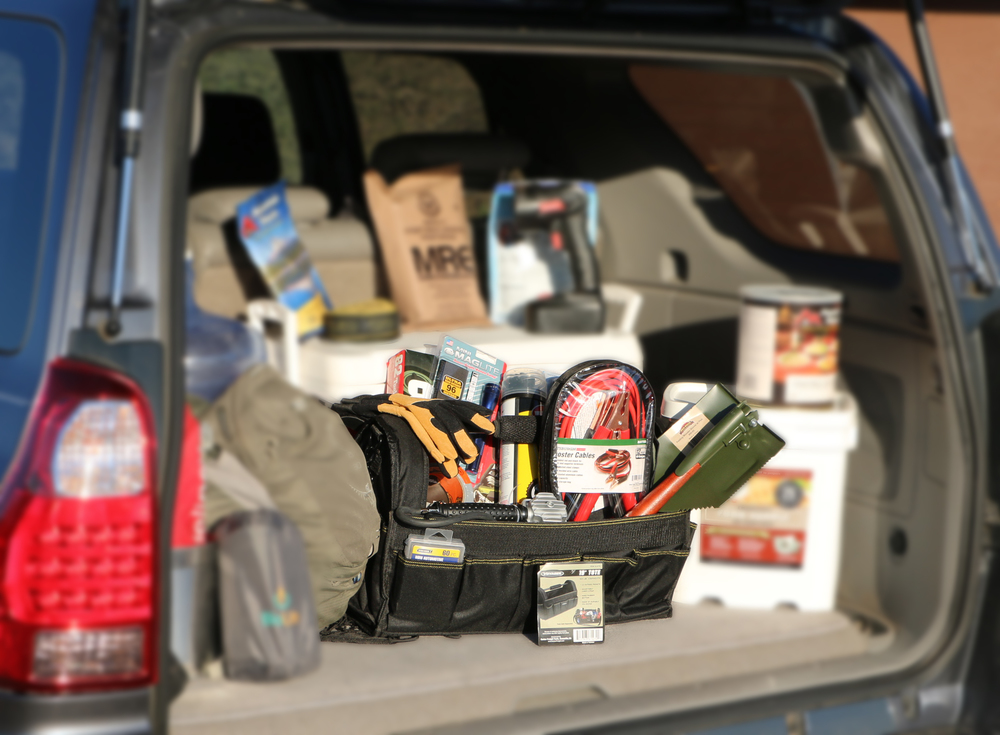DIY medical tips: What are antiseptics and why do you need them?
09/20/2019 / By Janine Acero

Basic hygiene practices such as washing hands with soap and water are taught from childhood. On top of washing, many people also use antiseptics to better get rid of germs. Rubbing alcohol, hydrogen peroxide, and iodine are some common antiseptics found in most homes. (h/t to BeansBulletsBandagesAndYou.com)
Which is which: antiseptics, disinfectants, and antibiotics
Preventing infection is the main goal of antiseptics and disinfectants, while antibiotics are used mainly to treat infections. These products fall under the general category of antimicrobials – substances that kill microbes like bacteria, fungi and some parasites. Because these products have distinct differences, it’s important to know when and how to use them appropriately.
- Antibiotics are drugs that are either ingested or injected to halt the spread of infection in the body. Some antibiotics are administered topically on open wounds before covering with a bandage to reduce the risk of infection. If you’re sure that you’ve already got an infection, it may be better to use antibiotics instead of antiseptics.
- Antiseptics are substances applied to the skin to slow the growth of bacteria, such as those applied to a surgical site on a patient’s body before a medical operation.
- Disinfectants are substances applied to non-living surfaces, such as those used to sterilize operating tables and surgical tools.
Antiseptics are commonly used in hospitals, but some are available over the counter for home use. They are good for cleaning small cuts and minor wounds, preparing the skin for injection, or swabbing the skin before removing a splinter.
However, unlike soap and water which you can use as many times as you want, antiseptics should be used sparingly. Antiseptics can cause skin dryness and irritation, kill off harmless microbes living on your skin and mucous membranes, and even kill skin cells. Antiseptics are also harder to store in large quantities than soap.
Antiseptics for preppers
There are antiseptics that are easy to buy, can be used safely and effectively (if handled properly), and have good shelf life. These are all important factors to consider when choosing items to stockpile for medical emergencies.
Here are some of the best antiseptics for your prepping needs:
- Alcohol – Ethyl alcohol (ethanol) and rubbing alcohol (isopropanol or isopropyl alcohol) are commonly used antiseptics. They work fast against bacteria, viruses, and fungi. If you happen to have a bottle of vodka or whiskey lying around, that will also work. Alcoholic drinks that are 60 to 90 percent ethanol (120 to 180 proof) can be used as antiseptics. Alcohol can also enhance the effect of other antiseptics, such as chlorhexidine. This combination is often used in cleaner gels. Note that alcohol may not work against spores. Spores are inactive or “hibernating” microbes, and many antiseptics have trouble killing them due to their lack of metabolism.
- Chlorhexidine – Also known as chlorhexidine gluconate (CHG), this antiseptic is a common ingredient in hand hygiene products and mouthwashes. It is effective against many kinds of bacteria but is not that powerful against viruses and mycobacteria. Some people are allergic to chlorhexidine, but it’s generally not as irritating as alcohol. Note that chlorhexidine may not work if there’s a lot of organics (dirt) on the surface to be disinfected.
- Iodine – Povidone-iodine, commonly known as Betadine, is an antiseptic that’s easy to find and use. A tincture with 10 percent iodine is also effective against most bacteria, mycobacteria, fungi, spores and viruses, but it is more irritating to the skin than povidone-iodine. Health care providers often ask if their patient is allergic to shellfish before prescribing the use of iodine.
- Bleach – Bleach is more of a disinfectant than an antiseptic, but it is effective and useful for long-term prepping needs. It is one of the few substances that can effectively kill spores and even prions, which cause the dreaded Mad Cow Disease.
Hydrogen peroxide, while another common antiseptic, has a limited shelf life and may not be suitable for long-term prepping purposes.
Natural antiseptics
If you run out of antiseptics, there are natural alternatives that you can use that may just be lying around in your kitchen. Some great examples are: (Related: Natural antiseptics to fight infections in a SHTF scenario.)
- Apple cider vinegar – Acetic acid, which is abundant in apple cider vinegar, is a powerful natural antiseptic. A staple in any prepper’s pantry, apple cider vinegar can be used to clean wounds and disinfect medical tools.
- Baking soda – Another staple item in a prepping stockpile, baking soda has mild antiseptic properties that can kill some parasites, fungi, and molds.
- Lemons – Many cleaning products have lemon extract as their active ingredient. Lemons are rich in citric acid, which is an effective disinfectant. However, do not apply lemons or lemon juice directly to an open wound – it will sting! Instead, use lemon essential oil to reduce scarring. A cleaning solution made up of lemon juice and other natural ingredients can be a great general disinfectant to have around the house.
- Witch hazel – Witch hazel is a popular ingredient in topical remedies for mosquito bites and acne. Its antibacterial properties help reduce swelling and repair broken skin. It can also help with other skin irritations, such as poison ivy rash, poison oak rash, and eczema.
- Essential oils – Essential oils are potent substances that have numerous benefits. Some notable essential oils that have powerful antibacterial and germicidal properties include camphor, cinnamon, citronella, tea tree, lavender, oregano, sweet orange, and spearmint essential oils. Some of these oils are so potent that they need to be diluted in a carrier oil first before use to avoid irritating the skin.
Medical emergencies should be on top of your prepping priorities. Learn more preparedness tips and tricks at Preparedness.news.
Sources include:
Tagged Under: alcohol, Antibiotics, antimicrobials, antiseptics, apple cider vinegar, bacteria, Baking Soda, bleach, chlorhexidine, cuts, disinfectants, DIY, emergencies, emergency medicine, essential oils, ethanol, fungi, hand washing, how-to, hydrogen peroxide, hygiene, infections, injuries, iodine, isopropyl alchohol, lemons, natural antiseptics, natural disinfectants, parasites, preparedness, prepper, prepper medicine, prepping, prevention, remedies, rubbing alcohol, soap and water, spores, survival, survival medicine, virus, viruses, witch hazel, wound cleaning, wounds
RECENT NEWS & ARTICLES
COPYRIGHT © 2017 GEAR.NEWS
All content posted on this site is protected under Free Speech. Gear.news is not responsible for content written by contributing authors. The information on this site is provided for educational and entertainment purposes only. It is not intended as a substitute for professional advice of any kind. Gear.news assumes no responsibility for the use or misuse of this material. All trademarks, registered trademarks and service marks mentioned on this site are the property of their respective owners.



















